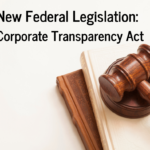The Coronavirus Aid, Relief, and Economic Security (“CARES”) Act, signed into law on March 27, 2020, included over $2 trillion for economic stimulus and support, with $349 billion earmarked to provide support for small businesses via the Paycheck Protection Program (“PPP”) overseen by the Small Business Administration (“SBA”).
But those funds were depleted a mere 14 days after applications opened, leaving thousands of small businesses unable to apply for or receive PPP loans. According to the SBA, the agency approved more than 1.6 million loan applications during the initial open application period.
On April 21, lawmakers confirmed that a new deal was reached to replenish PPP funds and re-open applications for small businesses. The new agreement includes a $310 billion replenishment for the PPP, bringing total PPP funding to $659 billion. $30 billion of the PPP replenishment amount is set aside for small lenders and community banking institutions.
The deal approved by lawmakers last week also included:
- $60 billion for small-business disaster loans,
- $75 billion for hospital emergency funding, and
- $25 billion for COVID-19 testing.
New Loan Application Process Guidance
The Treasury Department has released new Frequently Asked Questions Guidance discussing the good faith certifications made during the loan application process. The new guidance urges all small business applicants to diligently review the application’s certifications and ensure that the funds are necessary to support and maintain ongoing operations.
Further, applicants should examine their funding options and compare available liquidity to the PPP. The guidance specifically mentions public companies with capital markets access likely being ineligible for the PPP; however, the clarification appears to be relevant for all small business applicants.
Any companies that have applied or are considering applying for PPP funds should carefully read the loan application’s certifications and weigh their company’s economic outlook against the necessity of the PPP loan. Important considerations to ask when deciding whether to accept a PPP loan include:
- The level of economic uncertainty of the company;
- Concerns about making rent, utilities or payroll payments;
- Whether layoffs or wage reductions have occurred or are being considered;
- Other funding or support options available to the company; and
- The projected financial stability of the company.
PPP loans are intended to provide a critical stimulus of cash to help eligible businesses maintain payroll and pay costs such as rent and utilities. Additionally, the loans can be completely forgiven if used for eligible costs and the borrowing company maintains or restores required employee levels per the CARES Act’s guidance. For more information on the CARES Act and PPP loans, please reference our previous article, “Overview of CARES Act Key Provisions.“
As small businesses wait for the PPP funds to be replenished, they should begin preparing for the reopening of the application process. Contacting accountants, collecting the required documentation, and maintaining communication with their participating bank will ensure they are prepared to provide the required information and can quickly join the line of loan applicants.
The required documentation will vary depending on your lender, but most institutions will ask for the following documents:
- Organizational Documents,
- IRS Form W-3,
- IRS Form 940,
- Medical Insurance Payment Verification (if applicable),
- Retirement Benefits Verification (if applicable), and
- Information related to outstanding EIDL loans (if applicable).
If you are planning to apply for an SBA loan and have questions about the Paycheck Protection Program, please contact your KDDK attorney or any member of the KDDK Business Law Team.




